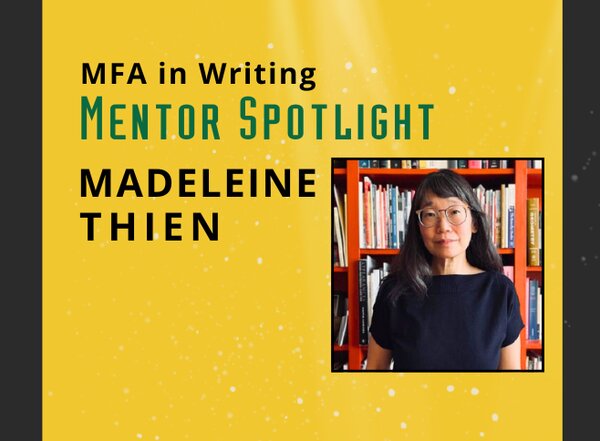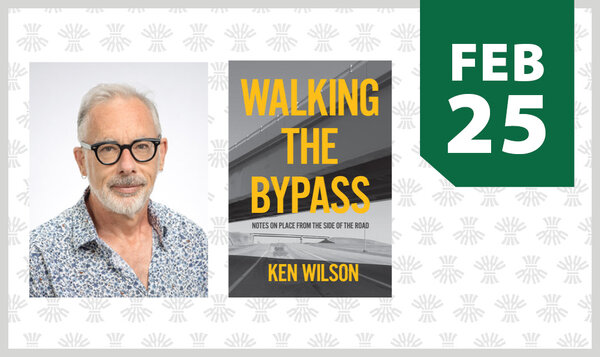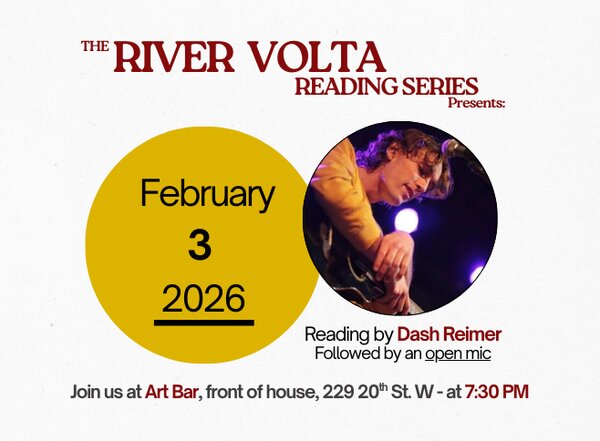
A Spotlight On: Sylvia Legris, Recipient of the 2018 Kloppenburg Award for Literary Excellence, Interviewed by Jaclyn Morken
Saskatoon poet Sylvia Legris, winner of numerous poetry awards and MFA in Writing mentor, chats with MFA in Writing student Jaclyn Morken.
Saskatoon poet Sylvia Legris, winner of numerous poetry awards and MFA in Writing mentor, chats with MFA in Writing student Jaclyn Morken.
1. How do you typically approach writing a poetry collection?
I'm a big believer in trusting where your current preoccupations or obsessions want to take you. You have to write what you're passionate or excited about, otherwise you run the risk of producing work that, though it might be competent and might even very likely be publishable, lacks spark and heart, and, sadly, is ultimately unmemorable. I'd much rather read work that's perhaps less polished, rougher around the edges, but that feels distinctive—like nobody else could have written it—and that leaves you with the feeling that the person who wrote that piece really got a kick doing so. You have to love your writing; you also have to love it enough to ditch it or chop it up when it isn't working. How does this relate to how I approach writing a poetry collection? Putting a collection together, trying to determine what shape it will be, what its poems, perhaps its sections will focus on…well, much of that happens after I've written enough poems that, as I answer in #3, surprise me and excite me, that make me think, ah ha, I nailed that! It's part instinct, part believing that what excites me might excite a reader. The much bigger part of putting together a collection, of making any successful piece of writing, is sheer determination, hard work, revising and revising until your head and your gut and your ear tell you it's right. I think it's also crucial to allow for accidents, for the unexpected. If you feel obliged to stick too closely to a project description or thesis, you might paralyse yourself. Projects change as you go along, often for the better. Writers have to remind themselves (constantly) that everything has to serve the writing; no matter how much you love a particular line, image, paragraph, or whole section, if it isn't benefiting the work, remove it. Doing so might initially be agonizing, but soon after you won't even remember what you removed because you'll have a stronger piece of writing.
2. What do you consider most challenging in writing poetry?
I get the sense that your question assumes that "challenging" is equivalent to "painful" or "unpleasant," something to be avoided. When the writing is at its most challenging, when I'm struggling to make something work on the page, is also when it's the most enjoyable and, ultimately, the most rewarding. Why do it if it isn't challenging? The whole point, for me, is to challenge myself, to push myself, to see what I'm capable of making out of language. When writing poetry ceases to be a challenge, I'll quit. I've spent many years of my life working at mind-numbing, unchallenging jobs—the work of poetry (for both the reader and the writer) should be the extreme opposite of mind-numbing. Mind-electrifying? Mind-exhilarating?
3. What do you consider most delightful in writing poetry?
When I write something that both thrills and surprises me and I'm left thinking, "that came from me...how did that come from me?"
4. Who are some of your influences/favourite poets?
Though I have always been a voracious reader, I'd say that my poetry, certainly my development as a poet, was influenced as much by work in other disciplines as it was by literature. I had/have several visual artists in my family, and as a kid/adolescent/etc., I encountered many visual artists. From an early age I acquired the habit of looking at art, as reproductions in books and by visiting galleries and museums and even artists' studios. Particularly in my earlier work, I viewed the page (despite its inherent limitations) as a space or room in which the borders were potentially more fluid, more expandable than is allowed by conventional margins. My key advice to beginning writers (other than read as if your life depends upon it) is "pay attention." Developing the practice of looking at artwork (in its broadest definition: painting, sculpture, installation, performance, film, etc.) honed my ability to look at things closely, from different perspectives, to pay attention to minute detail and to how changeable one's perceptions can be depending on elements like light, sightline, etc. Music and sound both clearly play a huge role in my poetry as well. While I can't listen to music when I'm writing, the music I listen to in downtime has to jibe with what I'm working on. For example, during the several years that I was writing Pneumatic Antiphonal, I listened almost exclusively to recordings of 17th-century music for the viola da gamba—this sounds pretentious, but there was something about the deep, visceral pitch of that instrument that meshed with all those "lung" poems.
It's hard to pin down which writers (poets as well as writers in other genres) have directly influenced my work—my reading has and continues to be all over the place. Standbys for me, writers whose work I return to, include: Emily Dickinson, Phyllis Webb, Rilke, Gwendolyn Brooks, Susan Howe, Thom Gunn, Geoffrey Hill, Will Alexander, H.D., Virgil, Christopher Dewdney, Rachel Zolf, Cormac McCarthy, Miroslav Holub, E.L. Doctorow, Camilla Gibb, Robert Walser, Joan Didion, Haruki Murikami, Dr. Seuss…
5. Finally, at the Kloppenburg Award presentation, you mentioned that it was here in Saskatchewan that you started figuring out how to be a poet. What is it about Saskatchewan and/or its community that helped you come to poetry?
I grew up in Winnipeg and moved to Saskatoon when I was already writing and just starting to publish poetry, so I'd say that whatever it was that informed the sort of poet I'd become had already happened before I arrived here (see my answer to #4). For me, figuring out how to be a poet meant finding a way to have enough money to survive and time to write—often the two don't coincide. When I moved to Saskatoon it was, compared to other cities, fairly inexpensive to live in. When I realized I wanted to focus as much as possible on writing, I concluded that time and quiet and privacy were more important to me than owning stuff. I've often lived in one-room apartments, barely scraping by—I've never had a vehicle (it was a huge luxury when I reached the point that I could afford a monthly bus pass), I don't own any property, I've tried to keep my belongings to a minimum. When I moved here, my entire life fit onto a 4-cubic foot shrink-wrapped pallet...since then I've really scaled back (at one point, I gave away nearly two thousand books).
One thing that Saskatchewan has is a history of supporting its artists. Thank goodness for the Saskatchewan Arts Board! I've been very fortunate in receiving grants over the years, which always buy you some time to breathe and to write. When necessary I've taken whatever work I've had to in order to survive (as I told one poet I know, I've never had any snobbery about jobs...a job's a job.). And then of course there's the arts community, the friendships I've had with other writers and artists. You asked in question 2 about the challenges of writing poetry. Every artist, whether established or emerging, struggles at some point (many of us chronically) with doubt and lack of confidence. Often what keeps me going is having conversations with other writers and artists I know who, despite making really wonderful work, experience the same doubts. We all necessarily work in isolation, but in many ways we're all in this together.


